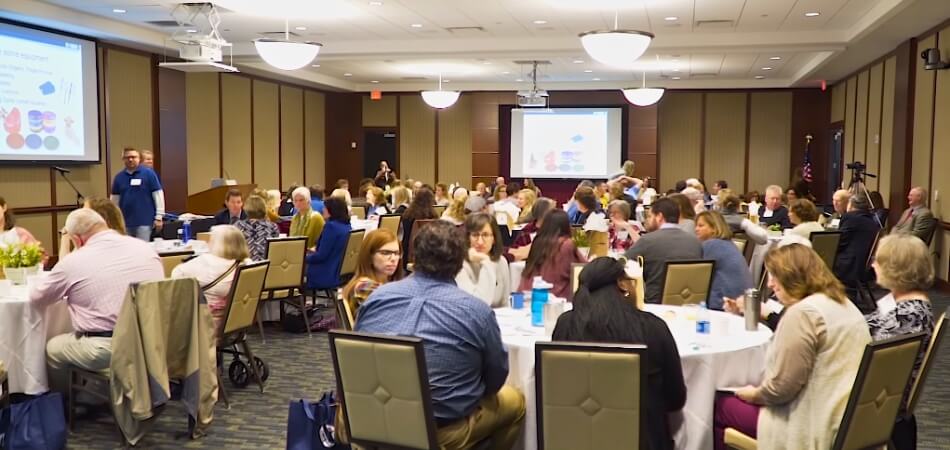It is an invaluable opportunity to connect with professionals, researchers, and advocates in the field of disability studies at the Autism and Disability Studies Conference in Canada. If you are living in Uganda and are wondering, “How to attend the autism and disability studies conference in Canada from Uganda?” The process is simple but requires some preparation.
Start by confirming the conference dates and registering early. Obtain an invitation letter from organizers, essential for your Canadian visa application, and ensure all travel arrangements and required documents are prepared well in advance. Once your visa is approved, you can move on to planning your travel and accommodation.
Prepare to engage deeply in discussions, network with industry leaders, and gain insights that can contribute to the autism and disability communities in Uganda. For more detailed steps, continue reading our full article.
Significance of Canadian Autism and Disability Studies Conference
The Canadian autism and disability studies conference serves as a crucial platform for sharing breakthroughs and research updates. Experts from diverse fields gather to discuss strategies that improve life quality for people with disabilities. It promotes a deeper level of awareness and effective collaboration among professionals.
This event offers a great chance to learn about the latest tools and techniques in autism support and care. Attendees gain practical knowledge that can transform their approach to disability studies. The conference also highlights successful interventions and programs that have made a significant impact.
When you participate autism and disability studies conference in Canada, you can engage directly with thought leaders and policymakers. This engagement plays a crucial role in driving innovation and advocacy within the autism and disability communities.
Are There Any Type of Autism and Disability Studies Conference in Canada
Yes, there are various types of conferences related to autism and disability studies in Canada. Each of these events relates to a different interest and need within the field. During these events, you will be able to learn, network, and share research. Here are some common types of conferences you might find in Canada:
National Autism Conference
This annual event gathers researchers, clinicians, and educators. They share insights on therapy, education, and autism policies. It’s a chance to learn about the latest research findings. Networking opportunities with professionals are abundant.
Disability Rights Forum
This forum focuses on advocacy and legal rights for disabled individuals. It explores how laws can better support the disabled community. Attendees discuss challenges and successes in disability rights. Solutions for more inclusive practices are highlighted.
Innovative Technology in Autism Care
Tech developers demonstrate new tools and apps here. These innovations aim to enhance daily life for individuals with autism. Families and caregivers can find useful resources. The technology displayed is often innovative and practical.
Educational Workshops for Autism Support
Workshops provide practical training for those new to autism support. Experienced practitioners share tips and techniques. These sessions are great for hands-on learning. They help attendees implement new strategies effectively.
International Symposium on Disability Studies
Scholars from around the world discuss recent academic research. Topics often include cultural, social, and economic impacts on the disabled. It’s a rich source of diverse, global perspectives. Collaborations across borders are frequently initiated here.
Is Attending an Autism and Disability Studies Conference in Canada Hassle-Free for International Attendees?
No, attending an Autism and Disability Studies Conference in Canada can present some challenges for international attendees. Many steps, including securing travel documents and planning accommodations, are necessary. These requirements can make preparation a bit time-consuming but manageable with careful organization.
For many, participating in an autism and disability conference offers rewarding networking and learning opportunities. However, international participants often face additional considerations, like visa applications and travel arrangements. These steps may add complexity, yet they ensure a smoother experience upon arrival.
Despite the extra planning, international attendees find the experience valuable and enriching. Engaging with global experts and advocates fosters new perspectives and knowledge. This opportunity to connect makes the effort worthwhile for those passionate about disability studies.
How to Attend the Autism and Disability Studies Conference in Canada from Uganda?
A visit to the autism and disability studies conference in Canada from Uganda is a worthwhile experience that requires some thoughtful planning. Experts will be presenting at this conference, which is a great opportunity to interact with them and gain valuable insight. Here is a step-by-step procedure to help you prepare effectively:
Step 1: Confirm Conference Details and Register Early
Start by checking the conference dates, venue, and registration details online. Register as soon as possible to secure your spot, as space may be limited. Early registration often provides access to additional resources and conference updates. This step ensures you are on the official list of attendees.
Step 2: Request an Invitation Letter
Once registered, contact the organizers for an official invitation letter. This document is essential for your visa application and travel plans. Clearly state your purpose of attending and share necessary identification details. An invitation letter often speeds up the visa approval process.
Step 3: Apply for a Canadian Visa
The next step involves applying for a Canadian visa at your nearest embassy. Complete the application form and include the invitation letter as supporting documentation. Make sure to check the processing times and plan accordingly. A valid visa will allow you to attend the conference without issues.
Step 4: Arrange Your Travel and Accommodation
After securing your visa, book your flight and find nearby accommodations. Look for hotels close to the conference venue to save time. Early booking can provide better rates and flexible options. This step ensures you have a comfortable place to stay.
Step 5: Prepare Required Travel Documents
Gather your passport, visa, conference invitation, and any other essential documents. Keep copies of these documents in both digital and physical formats. This preparation reduces stress during travel and ensures smooth entry. Organized documents make your journey easier.
Step 6: Engage Actively at the Conference
Arrive at the conference ready to learn, network, and share insights. Participating in discussions and activities enriches your overall experience. Engaging with others helps you gain valuable perspectives and establish connections. Embrace the opportunity to connect with industry experts.
Who Benefits Most by Attending the Autism and Disability Studies Conference in Canada?
Many participants benefit from attending the autism and disability studies conference in Canada. Participants at this event come from a wide range of backgrounds, including disability studies experts, advocates, and individuals interested in the field. Each participant gains from engaging in discussions, learning new strategies, and networking with peers. Here is a detailed explanation of who benefits most from attending this conference:
Researchers and Academics
Researchers in disability studies benefit greatly from attending. They can share their findings, learn about new research, and collaborate on future projects. The conference provides access to the latest trends and technologies. It’s a venue for academic growth and innovation in the field.
Educators and Therapists
Special education teachers and therapists find the conference highly valuable. They learn about new teaching methods and therapeutic approaches. This knowledge helps them improve their practices and student outcomes. They also get to exchange ideas with peers from various backgrounds.
Healthcare Professionals
Doctors, nurses, and other healthcare providers gain insights into medical and therapeutic advancements. Understanding these can raise their care for patients with autism and other disabilities. The conference offers workshops and sessions specifically targeting the needs of healthcare workers. It’s an opportunity to stay updated on best practices.
Advocates and Policy Makers
Advocates and policy makers can influence public policy by understanding new research and community needs. They network with stakeholders to push for changes that benefit the disabled community. The conference helps them gather compelling evidence and case studies. This supports their advocacy efforts for more inclusive policies.
Families and Caregivers
Families and caregivers also benefit by attending the conference. They learn about resources and support networks available for their loved ones. So, joining autism and disability conference offers them practical advice and emotional support. Connecting with others in similar situations provides comfort and community.
Frequently Asked Questions
If you’re considering attending the Autism and Disability Studies Conference in Canada from Uganda, you may have questions about the logistics, planning, and other essential details. This FAQ section covers key aspects to help you prepare smoothly and make the most of this international experience:
Can I Apply for A Visa without An Invitation Letter?
An invitation letter strengthens your visa application if you have one when applying for one. The letter confirms your purpose in Canada, which immigration authorities prioritize. Contact conference organizers to obtain this document before submitting your visa application.
Are There Special Accommodations for International Attendees?
Most conference venues and hotels offer facilities suited for international attendees, including translation services and accessibility options. You can also ask organizers for specific needs you may have, like mobility support or dietary accommodations, in advance.
Is Travel Insurance Required to Attend?
While not always required, travel insurance is highly recommended for international travel. It covers unexpected events like health emergencies, flight cancellations, or lost baggage. Having insurance provides peace of mind, ensuring you can focus on your conference experience.
What Are the Costs Involved in Attending?
Costs generally include registration fees, visa fees, travel expenses, accommodation, and meals. Some events may also have optional workshops with additional fees. Budgeting for these expenses in advance helps you plan a stress-free experience.
Can I Attend Virtually if I Can’t Travel?
Some conferences offer virtual attendance options, allowing you to participate remotely. Check with the organizers if a virtual ticket is available, as this option can still provide access to sessions, discussions, and networking.
Bottom Line
Taking part in the autism and disability studies conference in Canada can be an invaluable experience for Ugandans. Obtaining a visa requires confirming conference details, registering early, and securing an invitation letter. For those wondering how to attend the autism and disability studies conference in Canada from Uganda?, planning ahead for travel, accommodations, and gathering the necessary documents will ensure a smooth experience.
Engaging actively at the conference allows participants to gain valuable insights, network with experts, and bring back knowledge that can impact Uganda’s autism and disability communities positively. By following these steps, Ugandan attendees can fully benefit from the conference’s diverse learning and networking opportunities.








